Autoflowers are special cannabis seeds carrying the cannabis ruderalis genetics, allowing them to transition automatically from germination to flowering.
The ideal soil type for growing auto-flowers should have the proper secondary additives and a strong anchor for plant support.
You can make compost for auto-flowers by composting organic waste materials found readily in the surroundings. For example, you can use Bat Guano, kitchen waste, or organic manure for your compost.
Growth mediums are essential in every planting operation. Ground is commonly used since it is readily available. Autoflowers are special cannabis seeds carrying the Cannabis ruderalis genetics. They produce cannabis plants that initiate flowering without a change in the light cycle. As a result of this trait, they complete a growth cycle in a short period.
Your auto-flower can survive in suitable soil. For beginners, your first harvest depends significantly on how comfortable your auto-flower gets during the growth cycle. Regardless of the auto-flower strain, you are planting, your ground type selection directly affects how fast your auto-flower completes a single growth window. Experienced cannabis farmers have learned to adopt suitable ground types for their auto-flowers.
The ideal ground type for your auto-flower must have a few characteristics. These characteristics have been shown to grow auto-flowers properly ideally. In addition to supplying the correct type of nutrients at the proper stages, the ideal cannabis soil should also provide a reliable anchorage for the stem. Anchor support is essential for auto-flowers that grow large resinous buds and tall stems. Here are the characteristics of the ideal auto-flower earth;
Although this sounds like a generalization, auto-flowers, and other cannabis seeds appear to grow better in grounds with a fairly dark color. It is not about the color, as you might have wondered. Plant and animal waste decompose into manure that supplies cannabis with the essential macro-nutrients. These decomposed wastes almost always appear to have a fairly dark color.
Cannabis seed types do well in light soil. In heavy ground that retains too much water, the nutrients become over-diluted and beneficial microorganisms may be washed away. Light soils, on the other hand, have good drainage and appear fluffy when dry. Air circulates better in this turf type, exposing the root system to an adequate oxygen supply stream.
If you can get a soil type containing Perlite, your rate of success for auto-flower cultivation significantly increases. Perlite is a porous and complex material produced by overheating volcanic glass at very high temperatures. It mixes with other soil components to produce a perfect germination environment for cannabis seed types, including auto-flower strains. In addition to its supportive functions, Perlite contains a rich deposit of magnesium, calcium, and potassium.
Autoflowers are very sensitive to the soil component. It takes a short period for auto-flowers to complete a single growth cycle. The plant rapidly absorbs nutrients needed for cellular growth and rearrangement within this period. Chemicals present in the ground can be absorbed into the plant system. If absorbed, the adverse effect decreases the quality of your plant’s yield.
Sometimes, getting just the best ground for your first auto-flower planting project might be challenging. One of the most significant disadvantages of using just any soil found in the ground is that it gets very dense after many watering rounds. Making the ideal soil type becomes your next option. You can do this by getting the required materials in an agro store. An ideal turf, humus and ground mix should include peat moss. Peat moss is harvested from peat bogs and made of decomposed moss. Compost is another component you don’t want to miss. You can make your compost by composting organic waste materials found readily in the surroundings. You can use Bat Guano, kitchen waste, or organic manure for your compost. The secondary components required include Perlite and vermiculite. The permit-vermiculite composition absorbs water for the root and aid in early sprouting. These ingredients, once collected, should be mixed in this recipe;
Secondary substrates complement the ground’s component, making it suitable for growing auto-flowers through different growing seasons. These materials also help you control the density of your autoflower soil, making sure it is light enough for aeration and just heavy enough for little water retention. The most commonly used secondary substrates in auto-flower soil include;
Biochar is an organic additive popular for its water-holding functions. It acts as a pure source of carbon with an enormous surface area. Industrially, Biochar is made by heating wood to extreme temperatures until a tiny, deep-black substrate is formed. Once incorporated into this soil, this component helps the soil retain water and feeds the microorganisms a large depot of carbon. It takes a very long time for Biochar to decompose. This means it can remain active for many subsequent planting seasons.
By stabilizing how the soil handles water, Biochar gives a lot of superpowers to your auto-flower soil. It boosts fertility by preventing nutrients from leaking and holding beneficial microorganisms in place. The large surface areas also make it efficient in absorbing water and minerals beneficial to the plant. Made solely of pure carbon, Biochar also helps accelerate the decomposition rate of organic matter in the compost. As a result, the need for synthetic fertilizer application is eliminated, and your auto flower grows in the best environment.
Coco is the secondary addictive that makes your auto-flower soil mix well-aerated and lightweight. You only need a small quantity, 25% – 50%, of coco coir to improve the volume of air pockets in your auto-flower soil mix. In addition, it is an inert growing material and does not add additional quantities of Nitrogen, phosphorus, and potassium to the ground.
The first big point is that coco coir is cheap. Compared to other secondary soil addictive recommended for cannabis farming, coco coir can be obtained in an agro store cheaply. Its compositions make the best component for improving aeration in the soil. Many soil studies suggest that coco coir can absorb up to 10x its weight in water. It is also produced as a sterile material, lacking organic nutrients to nourish fungus or plant bugs. This means your plant is completely safe even if you overload the soil with coco coir.
Like permit, vermiculite is another popular secondary additive you can add to your auto-flower soil. This mineral increases the soil aeration level without affecting the soil’s acidity or basicity. It also supplies a rich deposit of nutrients to the plant. You must add vermiculite in the proper ratio.
As a sterile medium, this mineral does not alter the organic composition of your auto-flower soil mix. It also absorbs excess water and reduces the risk of mold growth. By absorbing excess water, you can also be sure that vermiculite improves your soil’s texture, making it fluffier and preventing the compaction of soil components.
The soil ph is a parameter describing the soil’s acidity or alkalinity level. It features a scale reading from 1 extreme acidity through 7 neutral to 14 extreme alkalinities. Depending on the components of the soil, the ph can vary. For example, Autoflowers generally grow better in a slightly acidic medium. Except for the neutral minerals, your auto-flower soil might contain different materials that can alter the ph. As you add new components, you must keep track of the ph changes to avoid damage to your auto-flower seed.
Experienced cannabis farmers keep their soils mixed within an optimal Ph range of 6.2 -2 6.5. A significant variation of this range can adversely affect your plant, burn out the beneficial organisms and deactivate the nutrients. If the Ph of your soil is altered, you might need to add stabilizing materials to correct it. For example, if the Ph is low, tending much towards acidity, you can add dolomite as a stabilizing agent. If the pH becomes too low, tending much toward basicity, you can add pine needles as a natural stabilizing agent.
Your auto-flower seed carries superior genetics, allowing it to transition from germination to flowering without modifying the light cycle. These traits help it complete a growth cycle within a short period. Many materials needed to make the ideal plant for your auto-flower may be sourced locally. Others can be purchased from an agro store. With the right soil mix, your auto-flower is guaranteed to complete each growth cycle with a high harvest yield. Buy auto-flower cannabis seeds straight from Amsterdam!
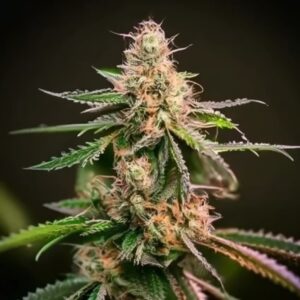


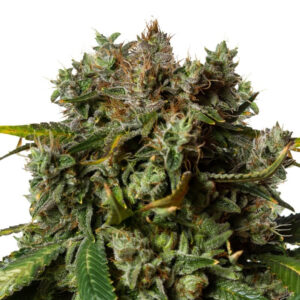

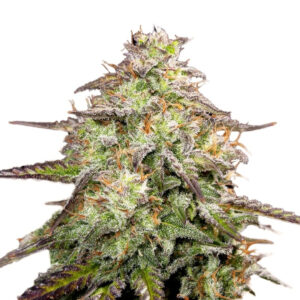
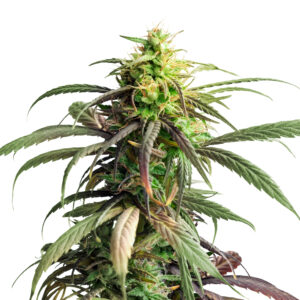






Related Posts
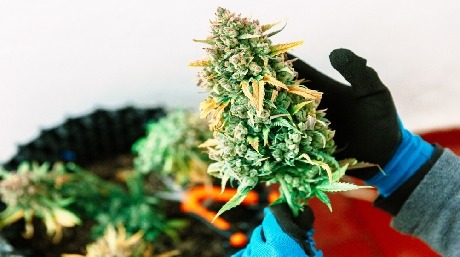
The weed strain Big Bud has an appropriate name. Huge buds grow on this predominantly Indica hybrid. Check this article to discover more about Big Bud.
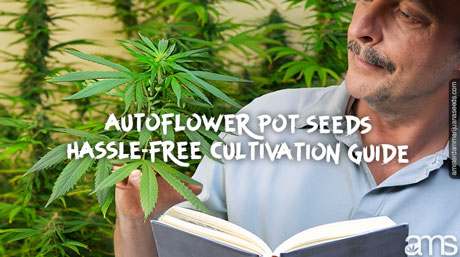
The autoflower pot seeds from Amsterdam are a paradigm of effortless cultivation. They represent self-sufficiency, smoothly transitioning your pot plant from germination to vegetative phase and into flowering, without any intricate interference or alteration of light cycles by the grower.

Growing marijuana requires more than just sticking a few cannabis seedlings into the soil and waiting for its buds. In addition to carefully tracking its growth, cannabis demands a lot of careful tendering.